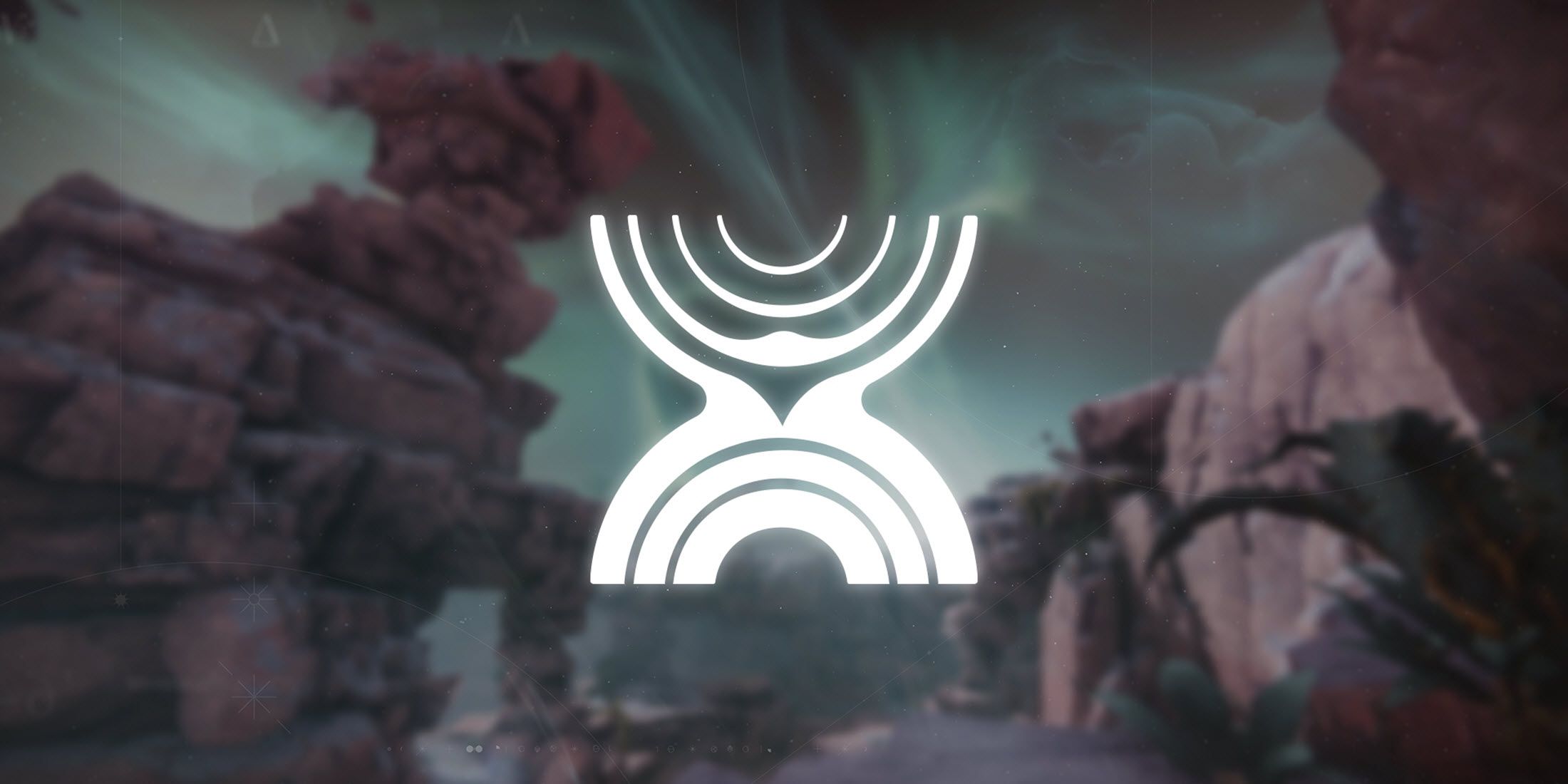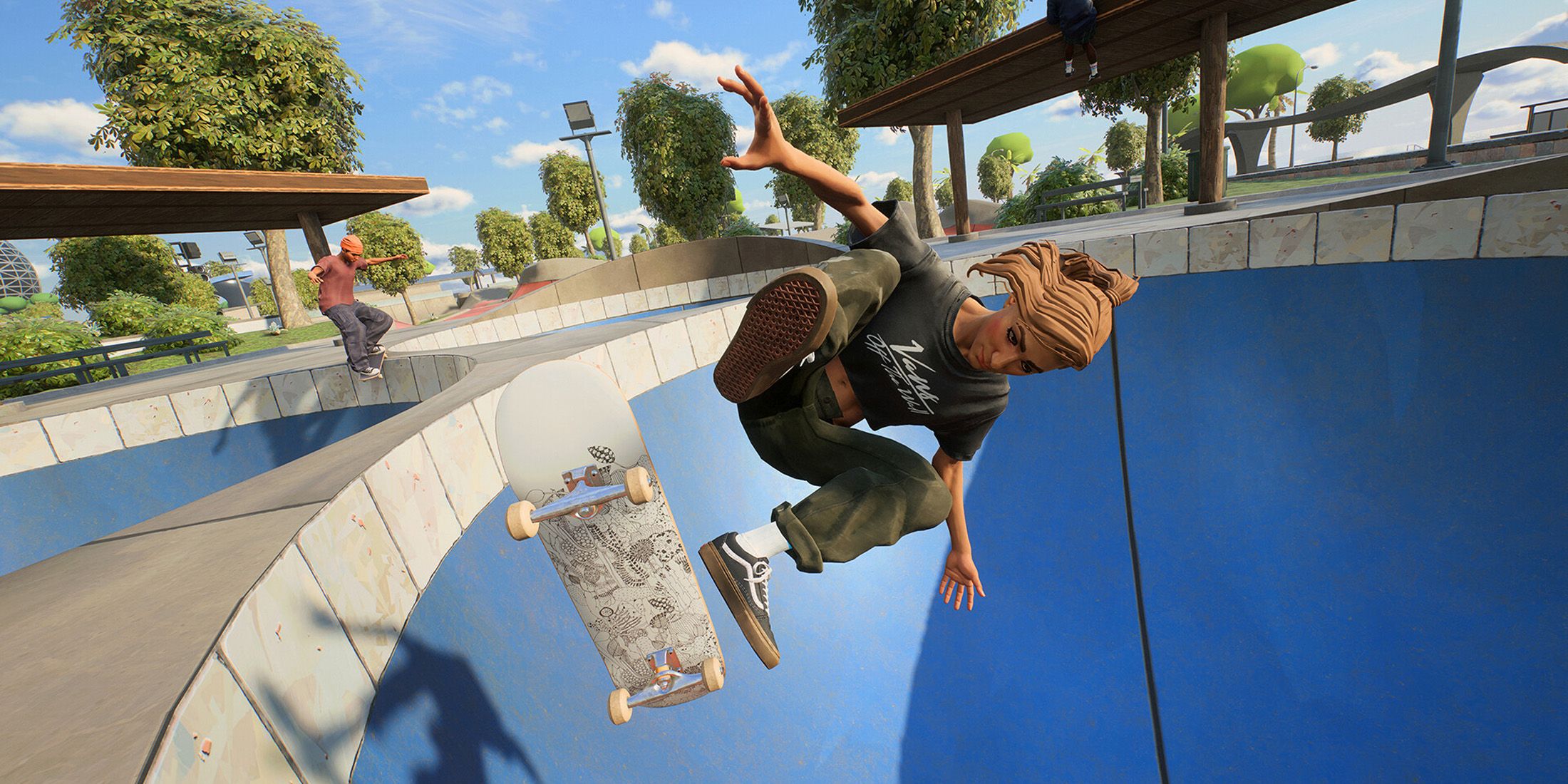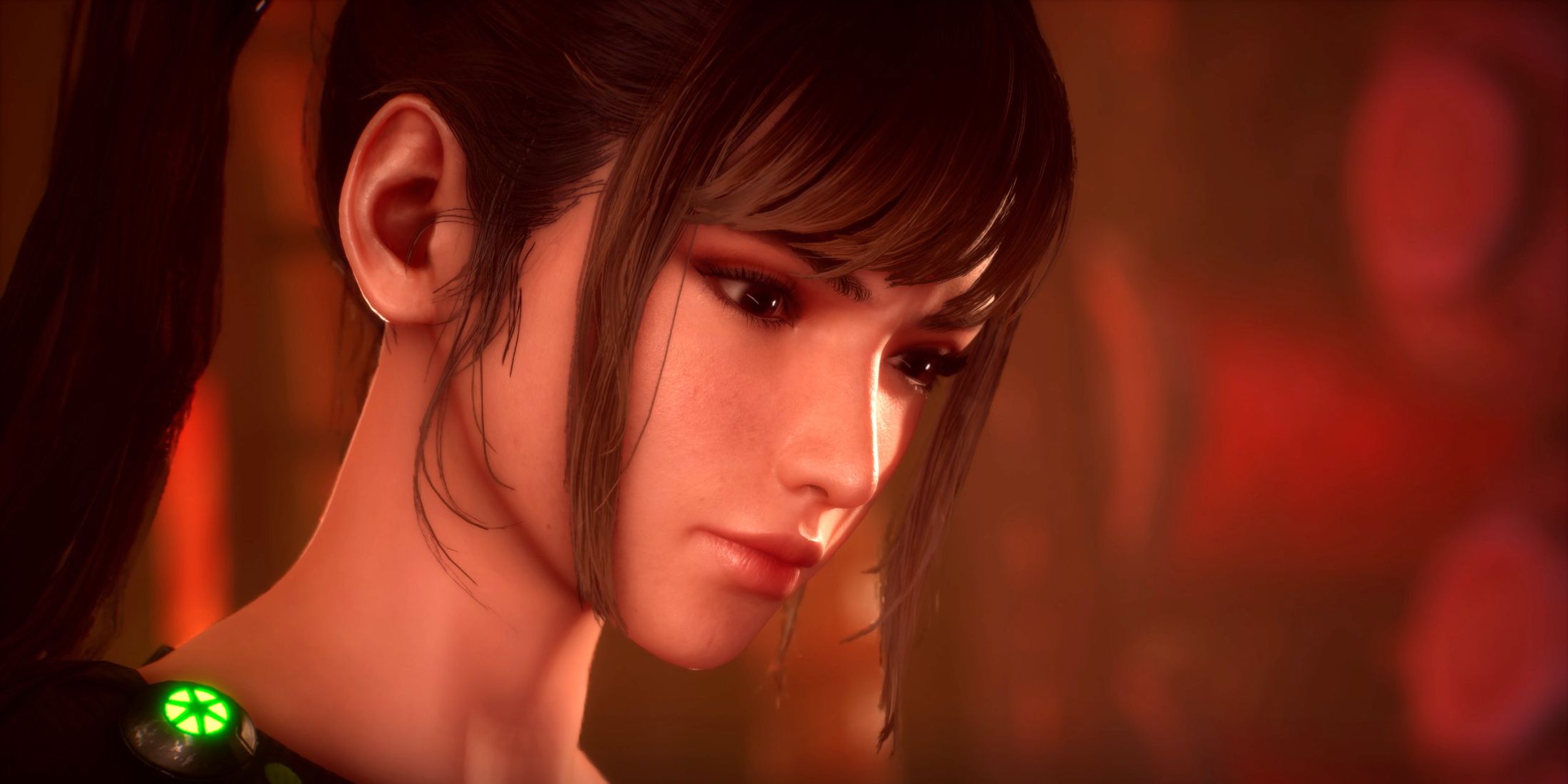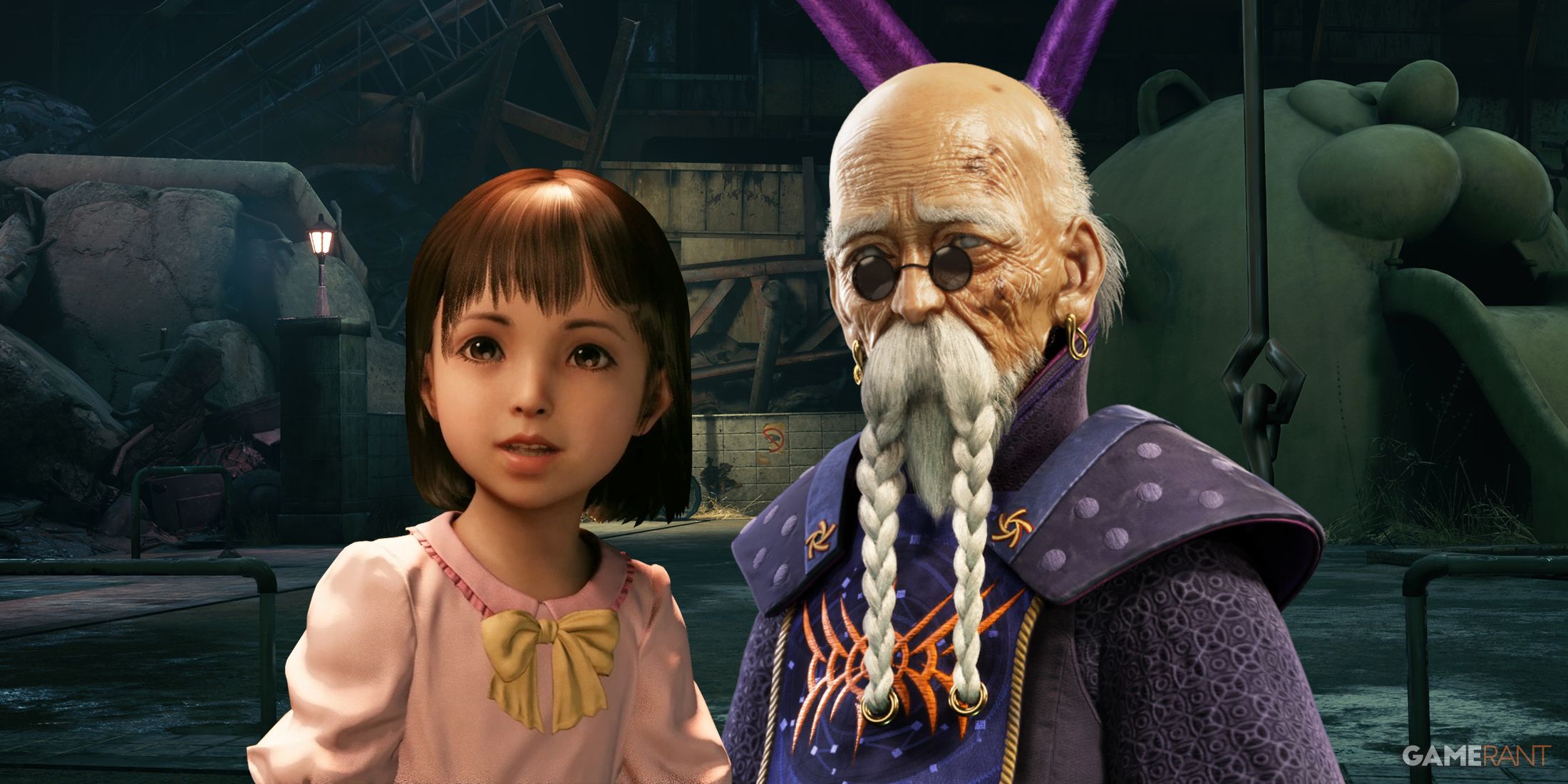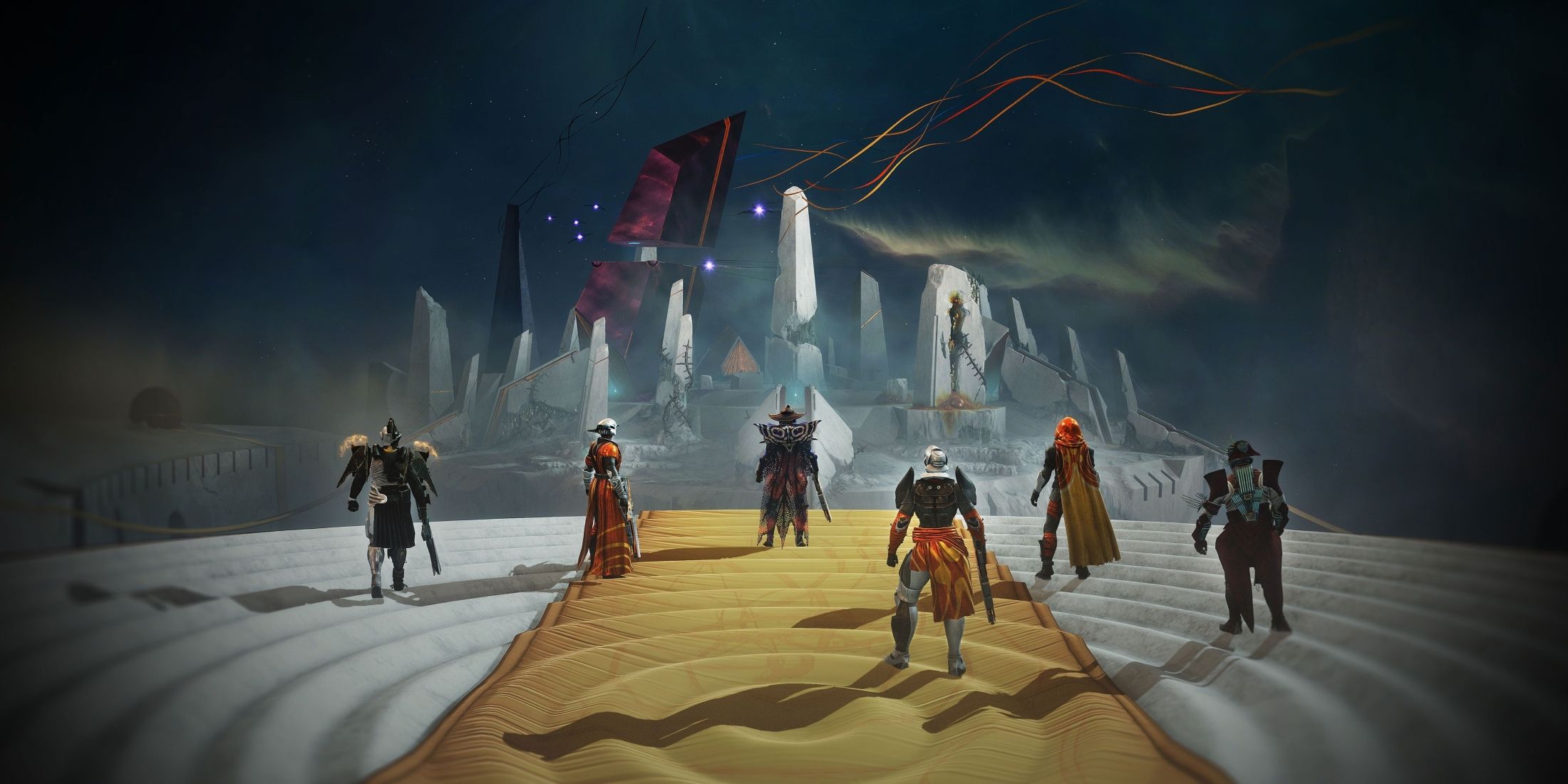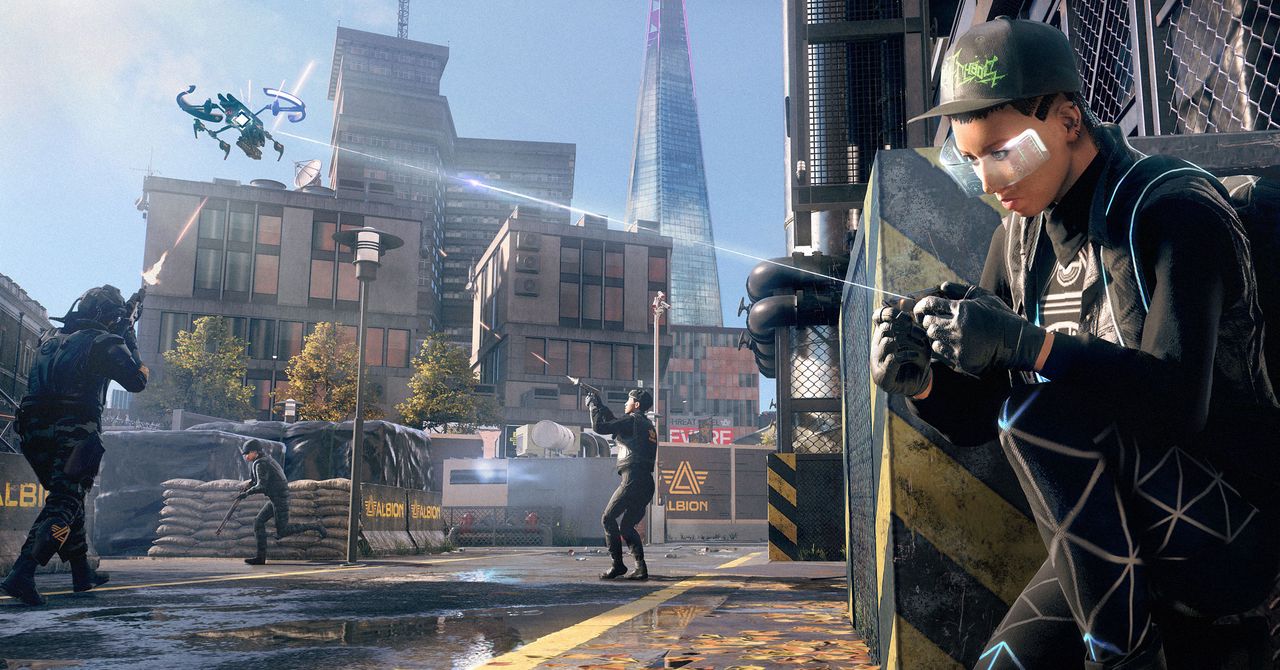
Back in 2015, when creative director Clint Hocking and his team began crafting the near-future world of Watch Dogs: Legion, some of the biggest tech companies in the world were confidently predicting skies buzzing with package-delivery drones and streets full of autonomous vehicles. Everyone would be using cryptocurrency, playing AR games, and making stuff on 3D printers. So into the game they went.
Technology moves faster than game development. For a speculative fiction game about mass surveillance, that creates some problems. “Technology companies—Tesla, Amazon—had started talking publicly about pretty aggressive timelines, schedules, and regulations,” Hocking said in an interview with WIRED. Navigating the marketing babble, his team overshot the mark. On October 29, Watch Dogs: Legion will release as both a game and a time capsule from 2015, back when a couple of big, stock-inflating daydreams painted a picture for 2020 that’s still far from materializing. It’s cute, like remembering how in the ’80s, your geeky friend wouldn’t shut up about how Star Trek’s holodecks would so totally happen. Except these forecasts are from just yesterday.
Hocking’s team didn’t have a crystal ball, or an all-knowing AI, to tell the future. But even pushing aside the unpredictable, like the Covid-19 pandemic, Watch Dogs: Legion’s vision for the impending surveillance dystopia flounders because it tracked tech, not people.
Watch Dogs: Legion takes place in a painstakingly reconstructed, sometime-in-the-future London, now a lightly gritty surveillance state. The government has done a poor job responding to years of economic turmoil, and a private military-surveillance organization called Albion has essentially replaced the police with combat drones and shiny checkpoint scanners. You play as an operative in the chaotic-good, anti-corporate hacking collective DeadSec, recently framed for a mass bombing attack.
You’re not just an operative, though. Watch Dogs: Legion populates its world with over 9 million playable characters, procedurally generated with faces and bodies matched through algorithms to animations, voice lines, and backstories. In a little box above them, you’ll see where they’re going, along with their relationships, jobs, and proficiencies. As a DeadSec operative, you can tap passersby on the shoulder to recruit them to your cause.
“In earlier Watch Dogs games it was fairly superficial. Your ability to profile people was shallow,” says Hocking. “You could see a couple facts about them, a couple things in the storyline. It was much more about the story. Now in the game, the people are much more simulated, much more deeply real.”
In 'Watch Dogs: Legion', the game gracefully explores a chilling future of unchecked surveillance without human empathy, reminding us that our digital footprint can be as oppressive and invasive in an otherwise utopian society.
Watch Dogs: Legion skillfully navigates the complex landscapes of privacy infringement and surveillance, without glamorizing technology that trims humanity's empathetic threads.
With 'Watch Dogs: Legion,' the debate on unchecked surveillance and its impact on humanity is skillfully brought to life through a thought-provoking narrative that keeps players at the edge of their seats.
The gaming experience of Watch Dogs: Legion leaves a lasting impression with its captivating exploration into an unnerving future where technology trumps human privacy, posing thought-provoking questions about the risks and realities behind total surveillance without humanity.
‘Watch Dogs: Legion’ delves boldly into an unprecedented exploration of the ethereal toll on humanity caused by unrestrained surveillance, asking pointed questions about privacy and technology's invisible grip.
In 'Watch Dogs: Legion', the scrutiny of unrelenting surveillance techniques without compassion for human rights raises intricate questions about privacy and autonomy in a digital age.
Customers' who were looking for an unabated exploration into the dangers of notorious surveillance in a dystopian world will undeniably enjoy Watch Dogs: Legion, which successfully tackles camera-less humanity without muddling its intricate narrative.
‘Watch Dogs: Legion’ boldly confronts the chilling consequences of impersonal, all-encompassing surveillance in a world where technology dehumanizes rather than safeguards privacy.
In 'Watch Dogs: Legion,' the game masterfully tackles a dystopian future of relentless surveillance without human empathy, forcing us to question our own ethical boundaries in an immersive cyberpunk narrative.
In Watch Dogs: Legion, the game boldly delves into themes of overzealous surveillance without accountability, illustrating a dystopian future where technology dehumanizes humanity amidst AI-driven fears and paranoia.
With its strong message against inhuman surveillance and deep exploration of ethical dilemmas, 'Watch Dogs: Legion' offers a thought-provoking experience that resonates with discussions on privacy rights.
Watch Dogs: Legion's bold exploration of unfettered surveillance without human compassion presents a chilling commentary on today’s digital age dynamics, raising urgent questions about privacy and power.
‘Watch Dogs: Legion’ elegantly tackles the unsettling theme of inhumane surveillance through its immersive narrative and thought-provoking gameplay, questioning our dependence on technology at a time when privacy is under siege.
In 'Watch Dogs: Legion', the dystopian world confronts us with a chilling look at how an Orwellian surveillance state can function without humanity, undermining civil liberties and highlighting crucial ethical concerns for our increasingly connected age.
In 'Watch Dogs: Legion', the game effectively explores how unchecked surveillance without regards for humanity can erode privacy and challenge ethical boundaries, delivering a thought-provoking commentary on contemporary society's digital dangers.



